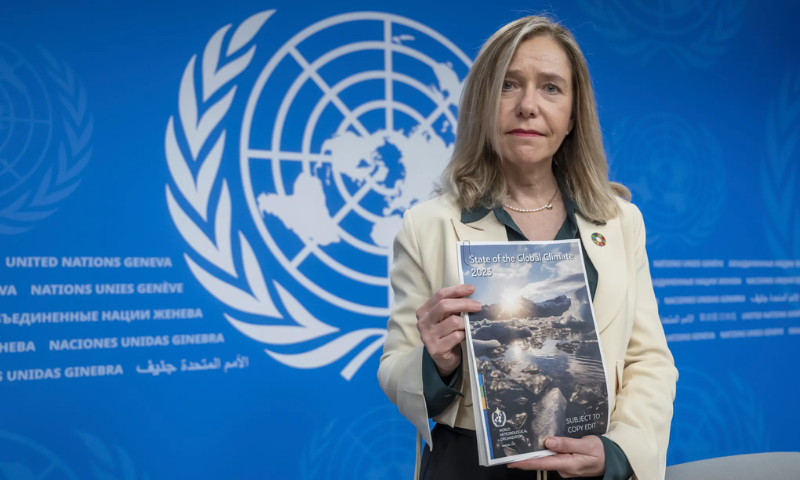GENEVA: The United Nations’ World Meteorological Organization (WMO) issued a worrying report on Tuesday, confirming that 2023 was the hottest year ever recorded, marking the conclusion of the warmest decade on record.
According to the WMO’s annual State of the Climate report, global heat records were “smashed” last year, with the average near-surface temperature reaching 1.45 degrees Celsius above pre-industrial levels. This alarming trend places the planet perilously close to the critical 1.5-degree threshold agreed upon in the 2015 Paris climate accords.
UN Secretary-General Antonio Guterres described the report as a distress call from Earth, warning that fossil fuel pollution is driving climate chaos to unprecedented levels. He emphasized that the world is on the brink of irreversible climate catastrophe, with changes accelerating at an alarming pace.
Andrea Celeste Saulo, Chief of the WMO, underscored the urgency of the situation, cautioning that the world is edging dangerously close to the lower limit set by the Paris Agreement. She emphasized that the report should serve as a “red alert” to the international community.
The report highlighted alarming trends beyond rising temperatures, including unprecedented ocean warmth, glacier retreat, and Antarctic sea ice loss. Marine heatwaves affected nearly a third of the global ocean, posing grave threats to marine ecosystems and coral reefs.
Furthermore, key glaciers worldwide experienced record ice loss, while Antarctic sea ice extent reached historic lows. The accelerating pace of ocean warming and melting ice sheets has driven sea levels to their highest point since satellite records began in 1993, exacerbating the risk of coastal flooding and displacement.
The WMO emphasized that the climate crisis is exacerbating food insecurity and biodiversity loss worldwide, with the number of acutely food-insecure people more than doubling since the onset of the Covid-19 pandemic.
Despite these dire warnings, there is a glimmer of hope in the form of surging renewable energy generation. The WMO noted a nearly 50% increase in renewable energy capacity last year, primarily from solar, wind, and hydropower sources.
Secretary-General Guterres stressed that there is still an opportunity to mitigate the worst impacts of climate change and keep global temperature rise below the 1.5-degree threshold. However, urgent and ambitious action is needed to address the climate crisis and safeguard the future of the planet.























